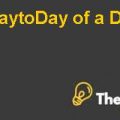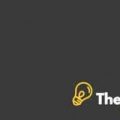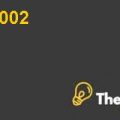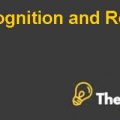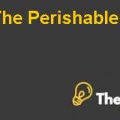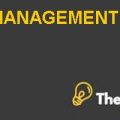The Boston Beer Company, Inc. Case Study Solution
Intrinsic Value using a DCF Approach
The intrinsic value is the real value of the company and is calculated using the DCF approach. For the discounted cash flows the WACC is calculated around (appendix-2) using the cost of debt and cost of equity. For the cost of equity, the risk-free rate is the government 30-year Treasury notes 6.25% while the risk premium is assumed to be 7.2%.
For the calculation of free cash flow (appendix-3) the growth of 5% is assumed as the BBC’s sales growth rate is sustainable over the period. Thus the change in working capital and depreciation is assumed to be 5% with respect to the sales growth. The resultant cash flows are discounted to get the present value of future cash flows. Thus, the company’s intrinsic value is $5603.90 which is taken as the base for the calculation of IPO price for BBC. There is an assumption that the intrinsic value of the company is the equity value of the company. The number of shares for the determination of IPO price is 900,000 (from the case). Thus, after dividing the number of shares, the IPO price for the stock is $5.66.
Projected Long Term Growth for Craft Brewing Segment
Over the period of the last five years, the craft brewing segment had grown rapidly (approx. 40% per year) which is the reason why analysts expect long-term growth in craft brewing segment of about 25% to 40%.
With the rapid growth, the craft brewing segment faces severe competition in the market in terms of product quality and brand name as the significant growth rate encourages investors to invest in beer companies.
There are plenty of opportunities for craft beer companies to expand in the short term to gain profitability and growth. Although the long term effect would be different as the increasingly fierce competition and the saturated market of craft brewing segment hinders the long term growth of the craft beer companies.
With the excellent growth rate of Boston Beer, it may experience significant growth for a few more years; however, the industry growth will stabilize eventually. With the stabilization in industry growth, the long term growth rate for craft breweries may not be around 25% to 40%.
The overview of the beer industry is not expected to grow with such significant rates, as a consequence, the breweries will be in a constant struggle of maintaining a certain market share. Further, as soon as the market begins to mature, the companies will have to reduce expenses to increase the profits.
Thus, the growth rate of 25% to 40% in the craft brewing segment is unrealistic as the market is saturated and companies may find it difficult to maintain their significant market share.
Appendix-1 Boston Beer Company Performance
| Boston Beer Company | |||
| Year Ended | 9 Months Ending | ||
| 31-Dec-93 | 31-Dec-94 | 30-Sep-95 | |
| Return on Equity | |||
| Profit Before Taxes/Net Sales | 6% | 8% | 7% |
| x Net Sales/Average Assets | 3.21 | 3.61 | 3.26 |
| x Average Assets/Average Equity | 2.72 | 4.81 | 2.52 |
| = Return on Equity (pre-tax) | 55% | 135% | 56% |
| Margins | |||
| Gross Profit/Net Sales | 49% | 48% | 46% |
| SGA/Net Sales | 48% | 46% | 45% |
| Operating Profit/Net Sales | 6% | 8% | 7% |
| Interest Expense/Net Sales | -0.003 | -0.002 | -0.002 |
| Inventory Turnover | 9.57 | 6.82 | 6.08 |
| Avg Collection Period | 38.38 | 31.98 | 50.52 |
| Avg Accts Pay Period | 30.01 | 95.36 | 46.24 |
| Aggregate Size Measures | |||
| Net Sales (000’s) | 77,151 | 114,833 | 108,905 |
| Barrels Sold (000’s) | 475 | 714 | 688 |
| Total Assets (000’s) | 24054 | 31776 | 33398 |
| Total Shareholders’ Equity | 8,854 | 6,600 | 13,229 |
| Total Employees | 110 | 138 | 174 |
Appendix-2 WACC Calculation
| WACC Calculation | |
| Total Assets | 31,776 |
| Long Term Debt | 1,950 |
| Total Equity | 6,600 |
| Debt to Total Assets | 6% |
| Equity Ratio | 94% |
| Pre Tax Income | 9085 |
| Income Tax Expense | 3,765 |
| Interest Expense | 233 |
| Interest Rate | 12% |
| Tax rate | 41% |
| Cost of Debt after Tax | 7% |
| Beta | 1 |
| Risk Free Rate | 6.26% |
| Market Risk Premium | 7.5 |
| Cost of Equity | 7.5626 |
| WACC | 7.53% |
Appendix-3 Intrinsic Value using DCF approach
| Intrinsic value Using DCF calculation | ||||||
| 0 | 1 | 2 | 3 | 4 | 5 | |
| EBIT (1-TAX) | 4,382 | 4601.03 | 4831.08 | 5072.63 | 5326.26 | 5592.58 |
| change in Depreciation | 561 | 589.05 | 618.50 | 649.43 | 681.90 | 715.99 |
| less: change in WC | 5,005 | 5255.25 | 5518.01 | 5793.91 | 6083.61 | 6387.79 |
| CFO | -62 | -65 | -68 | -72 | -75 | -79 |
| Change in FCI | 395 | 415 | 435 | 457 | 480 | 504 |
| FCFF | 333 | 350 | 367 | 385 | 405 | 425 |
| Terminal Value | 5644.46 | |||||
| Discounting | 349.58 | 317.46 | 310.00 | 4626.87 | ||
| Intrinsic value | 5603.90 | |||||
| IPO Price | 5.66 | |||||
This is just a sample partical work. Please place the order on the website to get your own originally done case solution.
How We Work?
Just email us your case materials and instructions to order@thecasesolutions.com and confirm your order by making the payment here


